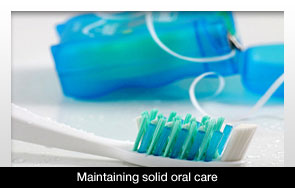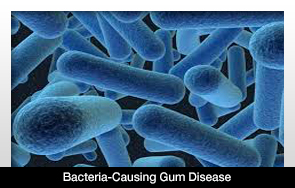 |
Disease prevention should be the prime focus of individuals eager to enjoy a lifetime of good oral health, says Hamilton dental hygienist Sandy Lawlor.
It’s vital for healthy teeth and gums and the practice will save consumers money.
Preventive care “saves you dollars,” says Lawlor, a member of the board of the Canadian Dental Hygienists Association. “If we can get people to take on the prevention message and practice good oral care at home, they are going to keep themselves healthier from a total healthcare perspective. They will probably have less decay and need less intervention in terms of dental work and less interaction with the healthcare system in general.”
“We seem to be gravitating to a more unhealthy lifestyle and there are a lot of potential contributors to the level of inflammation of the entire body,” says Dr. Anthony Iacopino, dean of the faculty of dentistry at the University of Manitoba and director of the International Centre for Oral Systemic Health. “Only one—the mouth—is easily handled. … Keeping your teeth clean and getting professional preventive care from the dental team is relatively easy and relatively cost-effective. Preventive oral care doesn’t cost that much compared to other more invasive approaches.”
Preventive work on the mouth is a simple matter, says Canadian Dental Association president Dr. Ronald Smith, emphasizing the importance of removing plaque. “Plaque is essentially an accumulation of bacteria. If the bacteria are allowed to accumulate, they form plaque that sticks to the teeth. The byproduct is an acid that erodes the teeth and results in cavities. It’s also a toxin that affects gums and causes inflammation. Long-term, that inflammation will lead to the breakdown of the bone supporting the teeth and, pretty soon, you have a bone-loss problem, peridontal disease.
“So you brush and you floss. Cleaning between the teeth is very important and this is the one that many people miss. Getting between the teeth and along the gumline are the most critical.”
Lawlor says the best defense against tooth decay is good care at home.
“Brushing twice a day is prime and, in an ideal world, we would love to see everybody floss daily as well. But, we don’t live in an ideal world and, although we have some faithful flossers, not everyone flosses. So we look for alternatives.”
Recommendations include using types of toothbrushes suitable for individual needs, picks, rubber-tip gum massagers, mouthwashes and various products for cleaning between the teeth. It is recommended that parents brush their children’s teeth for them until they are able to write (not print) their own names.
As part of the prevention strategy, “hygienists regularly come up with individual treatment plans designed for each client,” says Tracey Cote, president of the Independent Dental Hygienists of Alberta. “Home care is important, but it’s not always just about the patients’ level of home care. Sometimes, it’s about factors that are out of their control. They may be at higher risk due to hereditary factors, diet, medications that dry out their mouths or other diseases.”
“Individuals and families should work toward optimal oral health by keeping the mouth clean and increasing resistance to decay by getting tooth enamel harder,” said Dr. Peter Cooney, chief dental officer with Health Canada.
Hardening the enamel is accomplished with the use of fluoride in toothpaste, water, varnishes and treatments; Cooney says that treating the teeth with sealants is also helpful.
“The problem is that as disease takes root, the bacterial count goes up,” he said. “Now you have someone with increased susceptibility. The way to work against tooth decay is to keep teeth clean, use fluoride and get regular checkups with health professionals. If you have good brushing and flossing habits—the mechanisms that increase host resistance—you really can get dental disease and gum disease down to very low levels.”
“If you do a good job of removing plaque every day—assuming reasonable nutrition and no other systemic problems—decay is preventable,” Smith said. “The challenge is convincing people to do it.”
http://www.canada.com/Home+oral+care+first+line+battle+against+cavities+disease/4241634/story.html

|










